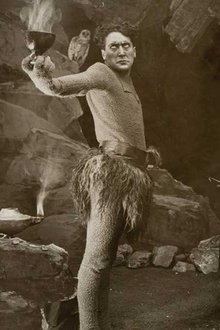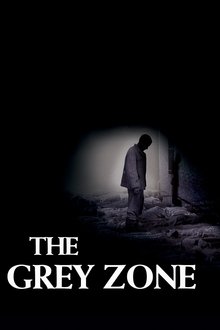Workers in a factory in pre-revolutionary Russia go on strike and are met by violent suppression.
Related Movies

The Life of Moses (1909)
Released in five parts (The Persecution of the Children of Israel by the Egyptians, Forty Years in the Land of Midian, The Plagues of Egypt and the Deliverance of the Hebrews, The Victory of Israel, The Promised Land), 4 December 1909 to 19 February 1910. A Vitagraph advertisement in the Moving Picture World (31 Dec. 1909) refers to The Life of Moses as a "Biblical Film-de-Luxe". It is preserved in the Library of Congress collection.
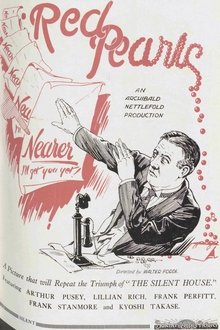
Red Pearls (1930)
A Japanese merchant attempts to drive one of his rivals mad by impersonating a man he had once murdered.
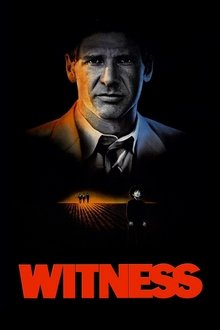
Witness (1985)
While protecting an Amish boy – the sole witness to a brutal murder – and his mother, a detective is forced to seek refuge within their community when his own life comes under threat.
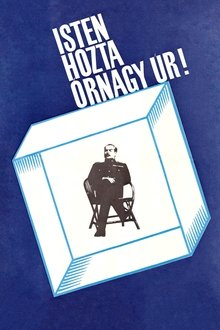
The Toth Family (1969)
The Toth family resides in Northern Hungary. The couple has a daughter and a son, the latter a member of the armed forces. When his weary major is ordered to take a vacation, the son talks him into a visit to his family home. Comedy ensues when the Toths go overboard trying to make things pleasant for the visiting major in hopes of an easier life for their son the soldier.
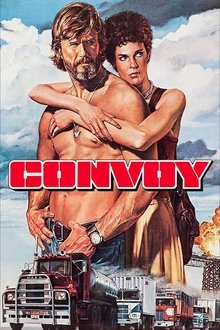
Convoy (1978)
Trucker Rubber Duck and his buddies Pig Pen, Widow Woman and Spider Mike use their CB radios to warn one another of the presence of cops. But conniving Sheriff Wallace is hip to the truckers' tactics, and begins tricking the drivers through his own CB broadcasts. Facing constant harassment from the law, Rubber Duck and his pals use their radios to coordinate a vast convoy and rule the road.
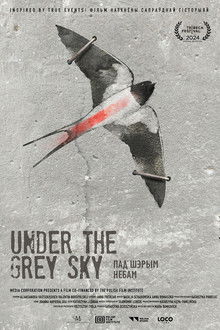
Under the Grey Sky (2025)
Based on true events, a Belarusian journalist is arrested after covertly livestreaming brutal government crackdowns on peaceful demonstrators following rigged elections. Her husband, refusing to leave her, also faces recriminations from a regime determined to break them both.
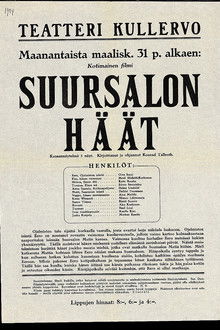
Suursalon häät (1924)
After Matti is stabbed to death at his own wedding, Eero of Ojelmiston becomes a suspect, presumed to have avenged his recently deceased wife. Eero escapes with the help of a court judge but surrenders after his mother gets into trouble. At the courthouse, the priest admits that Vieremä Jaska confessed to the crime on his deathbed. The film has survived, but without subtitles.

Muurmanin pakolaiset (1927)
In northern Finland in the fall of 1916, Saima Niva rescues a man drifting in the river, who turns out to be a German lieutenant Braun. Braun and his six comrades have managed to escape the prisoner of war at the Muurmann railway station, but the lieutenant has had to get rid of the lost group. While Braun is recovering, under the good care of Saima, Niva's neighbor and henchman of the gendarmes, the greedy policeman Simpura, gets a tip about the refugees camped in the desert.

Vaihdokas (1927)
When the general manager of the factory, Lumiala returns from his travels, he learns that his wife Anna has hired a young man named Oras as an office assistant. Anna, who feels Oras is the fruit of his youthful sin, is ready to defend the boy despite his family's petitions and Ora's crimes. Ora's girlfriend Pansy also tries to keep him on the right track.
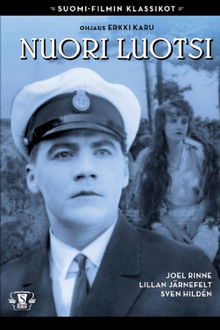
Nuori luotsi (1928)
Eero Luotola is a pilot operating in Kalliosaari, whose crush is Annikki, who lives in the same village. They have known each other since childhood and have promised to get married at some point.
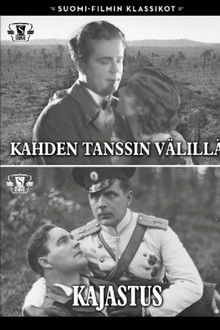
Kahden tanssin välillä (1930)
Forester Antti Kare and manager John Freyberg travel north in search of millions worth of timber sales. The manager's giddy daughter Margit also secretly joins the journey.

Reno: A City Symphony Film (2021)
Two friends travel around the city of Reno, Nevada, and go skating at a nearby parking garage.

Broken Barriers (1919)
This 1919 silent is the first American film based on the same Sholem Aleichem stories as Fiddler on the Roof, but produced 50 years before the blockbuster musical. Unlike most adaptations of Aleichem’s work, Broken Barriers (Khavah) focuses not on Tevye the milkman, but on his daughter Khavah, who falls in love with the gentile boy Fedka and must navigate the reverberations from this with both her community and her family.

Rakkauden kaikkivalta – Amor omnia (1922)
Örn, an aging countess, reminisces on the tragic fate of the young lovers, Carl-Johan Örn and Margareta by the family grave.

Samsara (2024)
Darta, a man from an impoverished family, is rejected by the wealthy parents of the woman he loves. Desperate, he strikes a bargain with the Monkey King, performing a dark ritual to gain wealth. However, in doing so, he accidentally curses his wife and child to a life of suffering. Rooted in Indonesian mysticism, this universal narrative explores the insatiable hunger to become something one is not and the boundaries one is willing to cross to achieve it.



